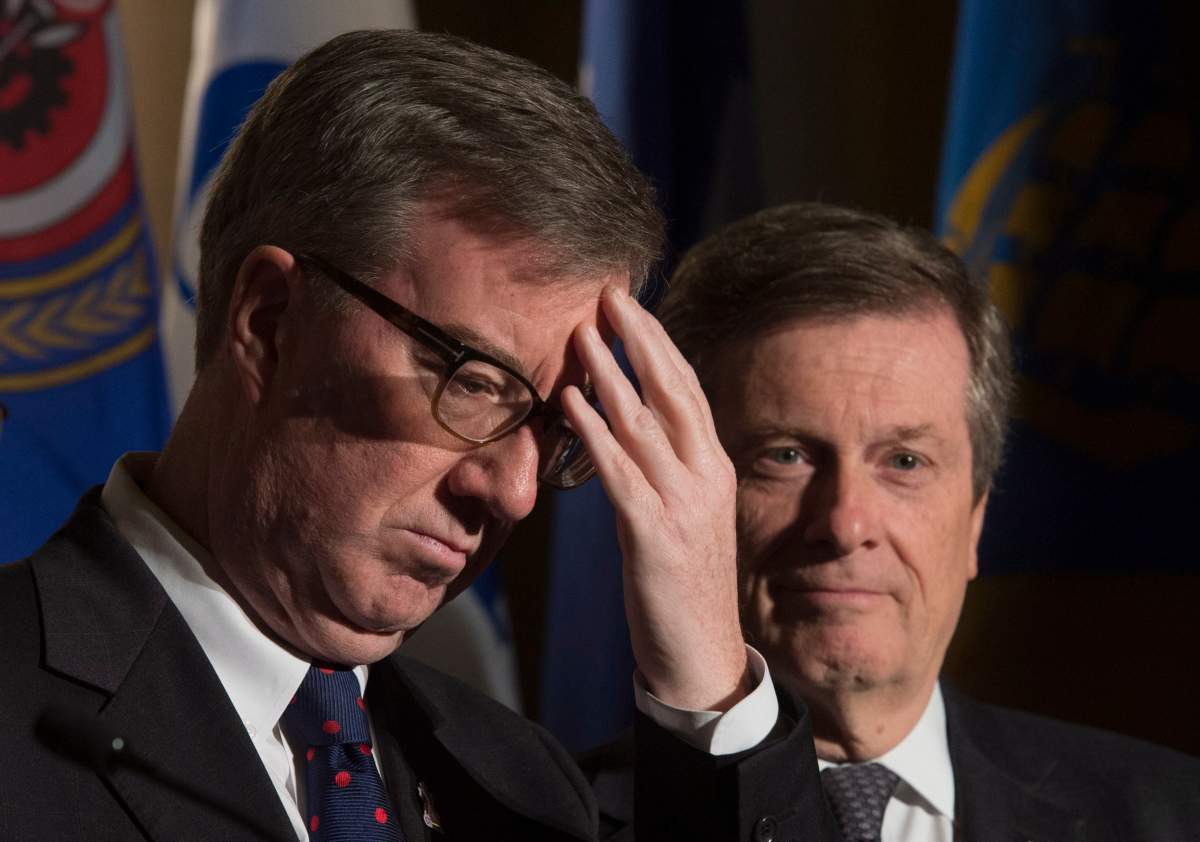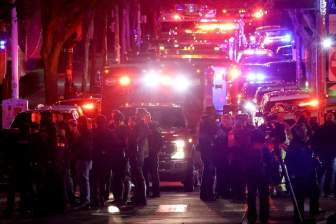With five weeks to go until recreational marijuana becomes legal in Canada, Ottawa’s mayor says the lack of information and detail about how this major policy shift will roll out in Ontario’s municipalities is “frustrating.”

Jim Watson said on Wednesday he intends to press the province for answers soon.
It will be legal to sell and smoke recreational weed in Canada as of Wednesday, Oct. 17, 2018. Ontario’s Progressive Conservative government earlier this summer decided to abandon the previous government’s plan to sell marijuana through government-run stores and go with a private retail system, which is scheduled to launch in April 2019.
The province has yet to introduce its cannabis legislation or regulations for that new private pot shop model, which is expected to explain who gets to regulate the number and location of those stores, and who is responsible for regulating them. It’s a big missing piece for the city of Ottawa and the local police force, who are hurrying to get prepared to enforce new cannabis laws.
Depending on when the provincial government introduces that bill this fall, the city could have only six months or less to get its ducks in a row before private stores go live.
“It is frustrating because we have a lot of work to do to get ready for stores to open in April,” Watson told reporters at Ottawa City Hall on Wednesday. “I believe I’m speaking or meeting with the minister of municipal affairs and housing in the next two weeks to stress the importance that we’ve got to get these answers relatively quickly.”
Watson, who is running for a third consecutive term in the municipal election, said in late August that he doesn’t think the city is fully prepared for legalization based on the information it has so far.

Get breaking National news
The date marijuana becomes legal (Oct. 17) the date of the municipal election (Oct. 22) and the anticipated introduction of the province’s legislation are all happening around the same time. On Aug. 29, Watson ordered city staff to “take all the necessary steps” so they’re ready to help the new council elected on Oct. 22 make a quick decision about whether to opt in or out of having physical cannabis stores next April (legal weed will be sold online in Ontario as of Oct. 17).
Big questions remain around illegal dispensaries, fines
Operationally, the Ottawa Police Service and the city’s bylaw officers are waiting on some key enforcement information.
Illegal marijuana dispensaries have been somewhat of a headache for local authorities and Watson said it’s still up in the air whether the Ford government will roll ahead with previous Liberal government’s regulations for dealing with these dispensaries, which included steep fines and jail time for offenders.
Watson said he thinks those regulations would be the city’s “most effective tool” for shutting down so-called “mom and pop” operations.
“The minute the landlord fears that he or she is going to end up in jail or have to pay millions of dollars, they’re going to kick that illegal pot operator out of their premise,” Watson told reporters. “I think that is the kind of thing (for which) we need some reassurance … because we need those tools.
“Right now, it’s not working very well. The police go in, they shut them down, they charge them and a couple of days later they’re back up and running.”
Law enforcement officers also still don’t know how much they should be fining an individual who breaks the law by smoking marijuana in a public area, for example.
‘Tough negotiations’ remain on money for municipalities
Watson reiterated on Wednesday there is still a lot of negotiating left to do with the province about how much cash Ottawa and other municipalities will get, respectively, to cover the extra “bylaw, police, public health, zoning (and) planning” expenses that legalized pot will trigger.
“We still have not settled on a financial compensation package for the municipalities,” Watson said. “We had a tentative agreement with the previous government but it was not anywhere close to what we need.”
The former Liberal government’s offer was $40 million for Ontario’s municipalities to split, based on need, over two years. Watson still insists that’s not enough money because Ottawa alone has estimated it needs about $8 million and the city of Toronto has pegged its expenses in the range of $23 to $24 million, which together “gobbles up” the majority of the proposed funding.
“We have some tough negotiations to go forward with,” Watson said. “We know that the other two levels of government will benefit financially through taxation but we have all of the frontline costs.”
Legal weed isn’t coming up at the door, mayor says
Although local leaders and authorities are somewhat anxious with the current state of affairs, Watson said on Wednesday the issue of legal cannabis has hardly come up at the door when he’s out canvassing for the upcoming municipal election.
“It has literally not come up at all in terms of emails to my campaign,” he said. “I think maybe one person raised it and they were concerned about the ‘mom and pop’ operations and they didn’t want it in their residential neighbourhood.”
Asked why he thinks he’s not hearing more about it, Watson ventured that it’s because the sale of legal marijuana is “still … a theoretical exercise.”
“It’s not being sold legally, there’s no identified location,” he said. “The minute a location is chosen, I will hear from people, trust me.”








Comments